For long we live on the ruins of the past Länge bor vi på ruinerna av det förgångna
Installation, 2017
HD video with sound 27:50 min, book of poetry, sound 6:30 min, wooden sculptures
In collaboration with: Katarina Leppänen, Linn Hansén, Maria Sundbom and Karl Malmqvist.
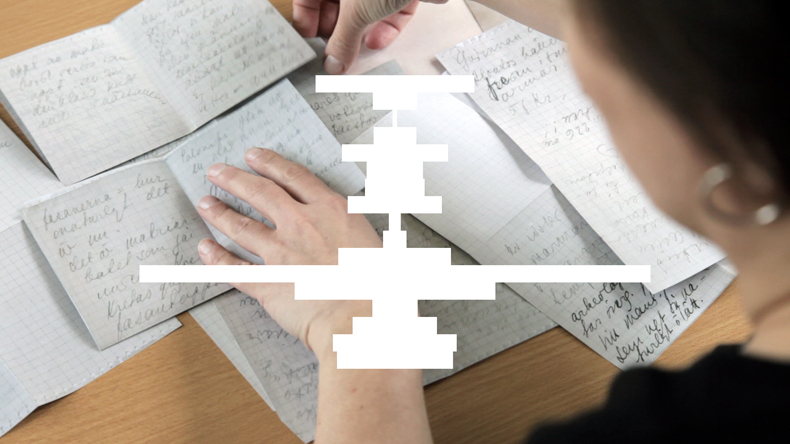
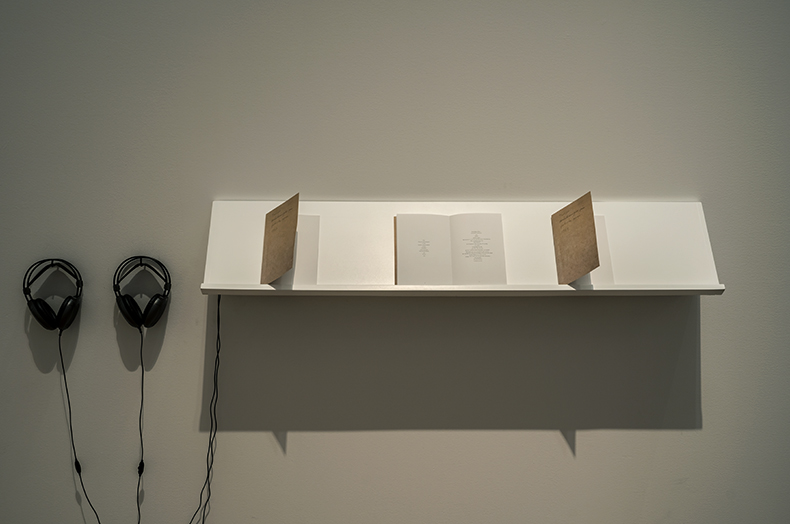
Installationen Länge bor vi på ruinerna av det förgångna följer i spåren av författaren och aktivisten Elin Wägners studieresa till Kreta 1937. Kreta, med sina utgrävningar av den minoiska kulturen, var en etapp av flera i hennes sökande efter pacifistiska och matriarkala samhällsformer i historien som kunde utgöra en motbild till den våldsamma och krigshärjade samtiden. Titeln är ett citat ur Wägners bok Väckarklocka (1941) där hon presenterade sina teorier och fynd samt en utopisk framtidsvision om en alternativ samhällsform. Sorterat under Övrigt i Elin Wägners arkiv finns en mapp märkt Troligen anteckningar från grekiska resan 1937. Däri ligger en handfull anteckningslappar som är utgångspunkt för installationen. Osorterade, vikta till fickstorlek och med svårläst handstil ger de känslan av oredigerad kontakt med Wägners tankar och associationer precis när de uppstått och snabbt behövts tecknas ner. I filmen försöker Katarina Leppänen, Wägner-forskare och idéhistoriker, tyda och arrangera lapparna tematiskt. Malin Franzén har sedan arbetat med att rekonstruera och översätta videoverket till andra uttrycksformer. På så vis har en ny samling texter uppkommit, vilka i sin tur gett upphov till en serie kulisser uppställda i rummet.
For long we live on the ruins of the past deals with how interpretations of history are used to support struggles for political change. Specifically, the work deals with the Swedish writer and activist Elin Wägner's radical and utopian critique of civilization, a critique that she built on archaeological findings from excavations on Crete and that she expressed most clearly in her book The alarm clock. The work draws on a collection of notes Wägner supposedly made on a research trip to Greece in 1937. Written in haste and on the move, they contain an opaque cipher of abbreviations. In the video, the Wägner scholar Katarina Leppänen attempts to interpret and convey the traces of theory fragments and observations contained in the notes.
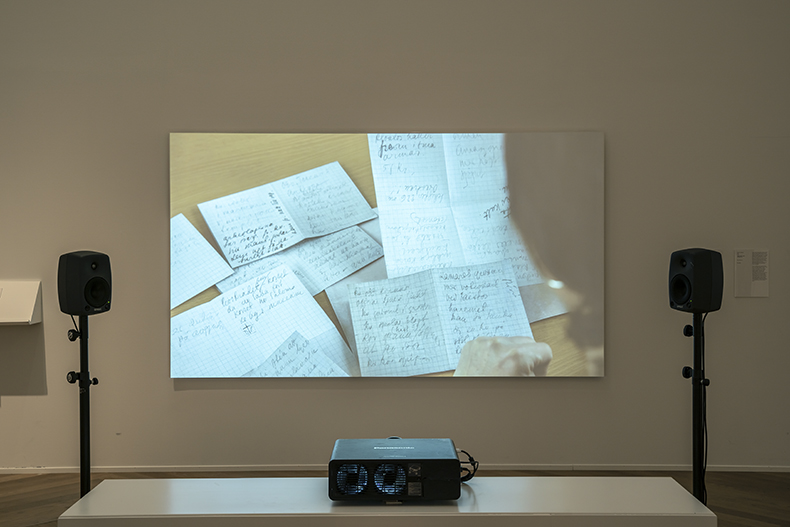
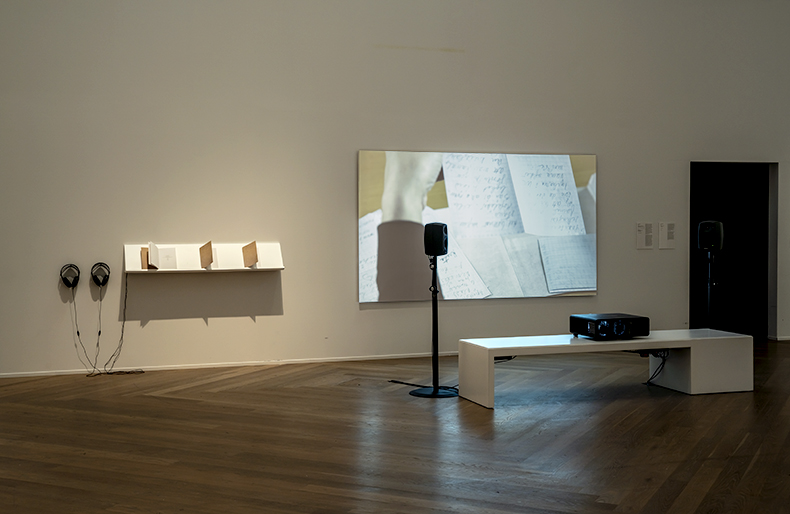
Installation view, Modernautställningen, Stockholm, 2018
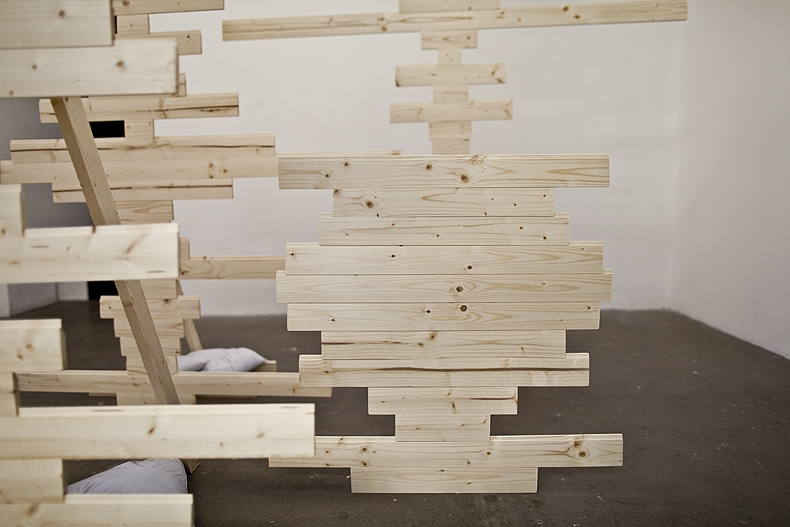
Installation views, Galleri 54, Gothenburg, 2017
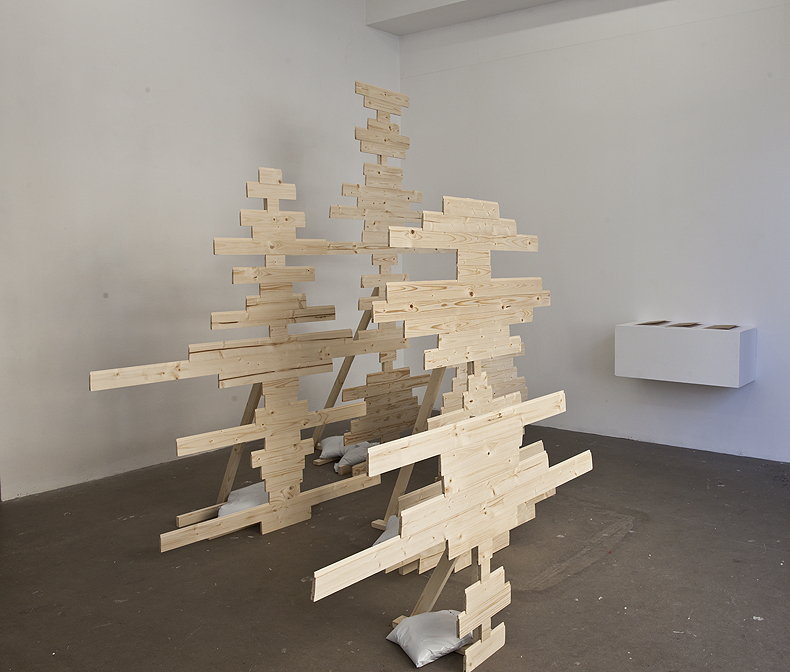
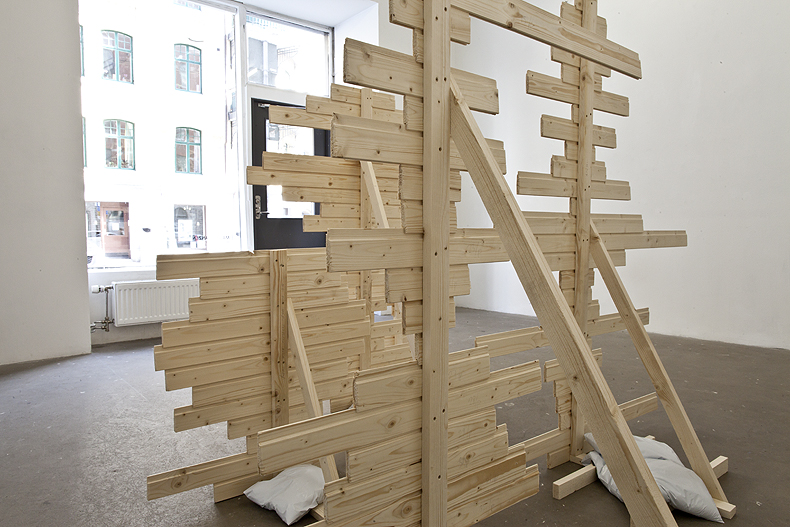
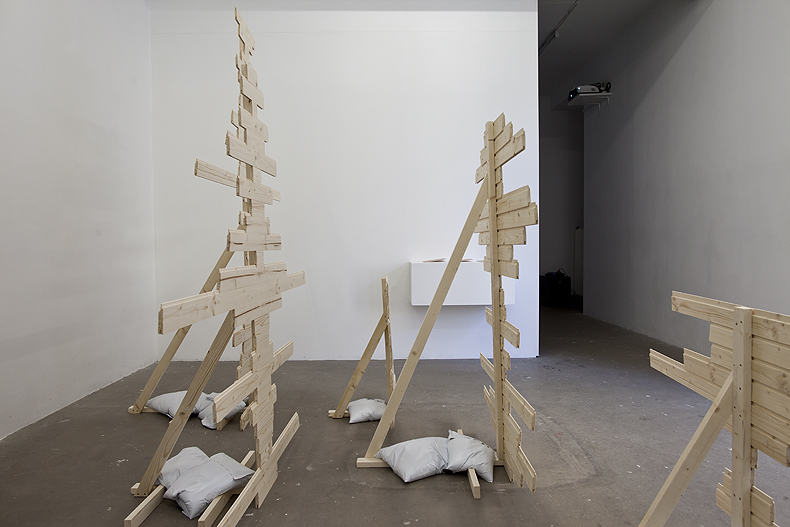
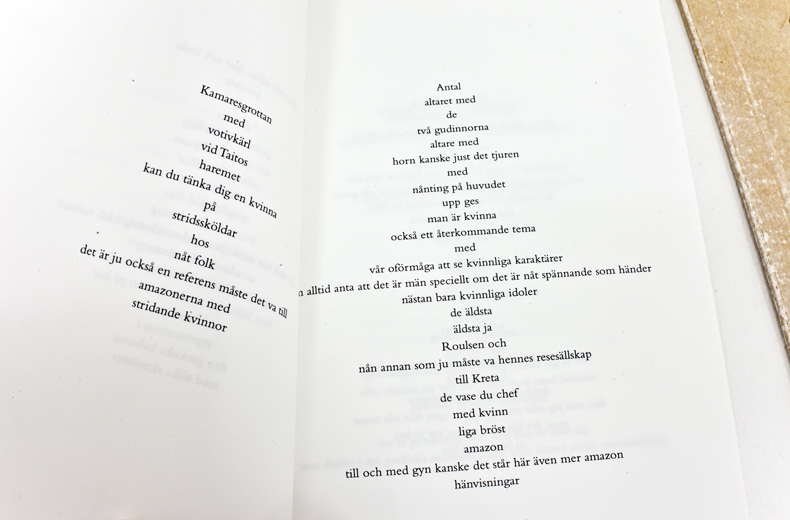
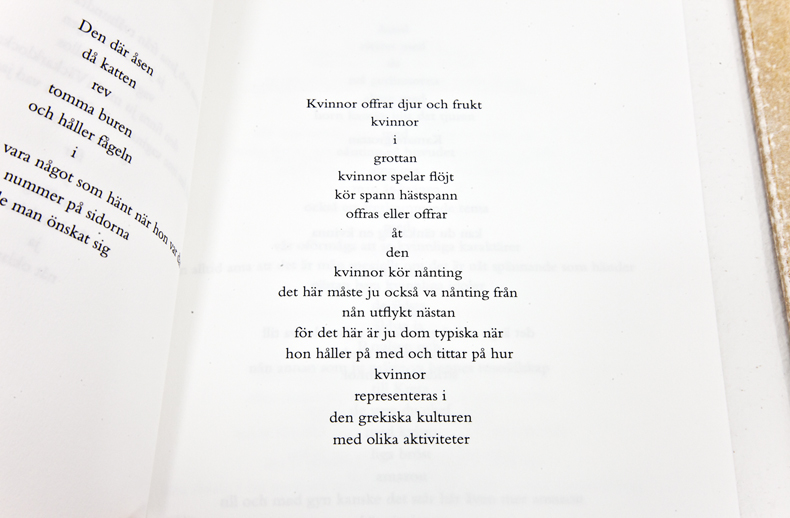
______
Palloniki Aten att en
stat ännu lyser
stark
Karlavagnen
att en stat ännu lyser
stark Karlavagnen
ja
Guinea Magna
Mater Austria
det måste ju va nån referens till
Österrike snarare än
nånting som hon upplever på resan där
Transsylvanien
läsa till sina barn
hon hade ju inga egna barn så det måste ju va någon annan som har läst nåt
fasanerna
hur
naturligt det är nu
det är
matriarkatet som får
i Kreta
Kretas
ynglingar fasantuppar
svärsonen
träffar
nej
i hustruns familj
just det det är också matriarkatet
där det var viktigt
för Wägner att det var
mannen som flyttade in hos
kvinnans familj och inte tvärtom
akta sig
att
nånting med svärden akta sig
att ta
nej
svärden
de dör ut
sen är det nåt på wc här
namn efter
moster helt ofattbart men
på wc
kan det ha nåt att göra med typ sanitet och hygien under
matriarkatet
det bottnar ingenstans
Hoffstetter
efter tre år är allt
rent
renatliga
jorden
så ren
att man kan äta
den
kreisland
ren natur
det här är jättekonstigt att det kommer här
kan det här förresten va
det här måste ju höra ihop med det här snarare
vad är det här för papper
där är vi på Kreta där är vi i Aten
och här verkar vi va i
hos
Mina Hoffstetter som ju
hon reste till innan så det här är säkert från ett block som hon har haft i väskan
och fyllt på lite allt eftersom eller om hon plötsligt har fått den här idén
när hon var på Kreta
det är ju den här
rena odlingen den hör ju i och för sig ihop med hennes idé om att matriarkatet va
ett renare och ett bättre sätt också att
eller att man under matriarkatet odlade jorden mycket bättre
och renare och
i en mer
i balans med naturen på ett annat sätt än under patriarkatet
så det kan ju mycket väl hända att den här idén har plötsligt kommit
under resan
kanske hon har sett nånting liknande
______
Palloniki Athens that a
state still shines
bright
Charles's Wain
that a state still shines
bright Charles's Wain
yes
Guinea Magna
Mater Austria
that must be a reference to
Austria rather than
to something she experiences on the trip there
Transylvania
read to one’s children
she had no children herself so it must be someone else who read something
the pheasants
how
naturally it is now
it is
matriarchy that gets
in Crete
Crete’s
youths cock pheasants
the son-in-law
meets
no
in the wife’s family
oh yes that is also the matriarchy
where it was important
for Wägner that it was
the man that moved in with
the woman’s family and not the opposite
beware
that
something with the swords beware
to take
no
the swords
they die out
then it is something on wc here
name after
aunt unbelievably but
on wc
might it sort of have something to do with cleanliness and hygiene during
the matriarchy
there’s no firm ground anywhere
Hoffstetter
after three years everything is
pure
pure
the earth
so pure
that you can eat
it
kreisland
pure nature
it is very strange that this occurs here
by the way can this be
this must rather belong to this
what kind of paper is this
there we are in Crete and there we are in Athens
and here we seem to be in
at
Mina Hofstetters who
she visited before so this is surely from a writing pad that she has carried in her bag
and added a little to as she went on or if she suddenly had this idea
when she was in Crete
it is this
pure farming of course it goes together with her idea of matriarchy as
a more pure and a better way also to
or that during matriarchy they farmed the land much better
and more pure and
in a more
in balance with nature in a different way than during patriarchy
so it can very well be that this idea has suddenly come
during her trip
maybe she has seen something similar
______